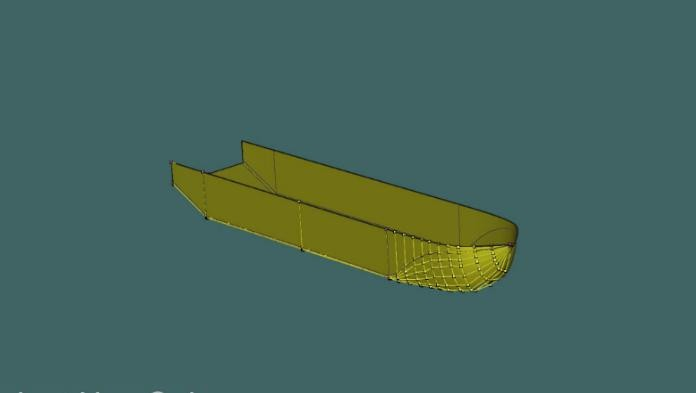FPSO (Floating Production Storage and Offloading) Motion Analysis using Mooring Radius Variations Based on Time Domain Simulation
DOI:
https://doi.org/10.62012/zl.v5i1.31723Keywords:
Tension, Mooring line, FPSOAbstract
Along with the development of technology, oil and gas exploration has begun to be carried out in the deep sea. One technology that can be used is FPSO (Floating Production Storage and Offloading). In order for the FPSO to be damped due to environmental loads during the production process, a mooring system is needed that meets standards according to the needs and environmental characteristics of the oil field. The mooring system used is a spread mooring system which is limited to 12 mooring lines. The research uses variations in the mooring line radius so that the length of the mooring line and the anchor position are different. This research is intended to analyze the effect of the mooring line radius on FPSO movement and the tension of the mooring line itself using a numerical approach with ANSYS AQWA software. From this study it can be seen that by increasing the length of the mooring line there will be a reduction in maximum tension on the mooring line, but the opposite is true there is an additional offset to the ship's movement. However, because the anchor position is further away in each radius, the tension value on the mooring line does not have a significant differenceDownloads
References
Rizki Amalia Prasiwi, Imam Rochani, dan Joswan J. Soedjono, “Analisis Perilaku FPSO (Floating Production Storage and Offloading) Terhadap Internal Turret Mooring System Berbasis Simulasi Time Domain” , 2013.
M Ikbal Afdhal, Untung Budiarto, dan Imam Pujo Mulyatno, “ Optimasi Disain Spread Mooring Dengan Konfigurasi Variasi Line Terhadap Six Degrees Of Freedom (DOF) Olah Gerak Pada Kapal Floating Storage And Offloading (FSO)” 2019.
Vikry Cendekiawan, “Komparasi Perilaku Gerak Flng Masela Terhadap Sistem Tambat Spread Mooring Dengan Konfigurasi Spread Dan Group (Bundle)”, 2016.
F. M. Assidiq, D. Paroka, M.Z. Muis, dan S. Klara, "Fatigue Analysis of Catenary Mooring System due to Harsh Environment in Head Seas", EPI International Journal of Engineering, vol. 1, no. 1, hlm.30-38, 2018
F. Julyardiansyah and F. M. Assidiq, “Configuration Comparison Catenary Spread Mooring Line On The Movement Characteristics Of Fpso Ships Using Numerical Analysis”, Journal of Maritime Technology and Society, vol. 3, no. 1, pp. 1-11, Feb. 2024.
M. H. Ba Naga and F. M. Assidiq, “Mooring Design and Fatigue Damage on Variant Fairlead Positions During FPSO Operation – Case Study”, Journal of Maritime Technology and Society, vol. 3, no. 1, pp. 43-51, Feb. 2024.
S. Saparuddin and F. M. Assidiq, “Analysis of Motion and Mooring of Fpso Vessels Due to Different Types of Mooring Material”, Journal of Maritime Technology and Society, vol. 3, no. 1, pp. 12-20, Feb. 2024.

Downloads
Published
How to Cite
Issue
Section
License
Copyright (c) 2024 Muhammad Mustafa Algifari Algifari

This work is licensed under a Creative Commons Attribution 4.0 International License.
Allow anyone to modify, improve, and make derivative works, even for commercial purposes, as long as they credit to you for the original work.




























